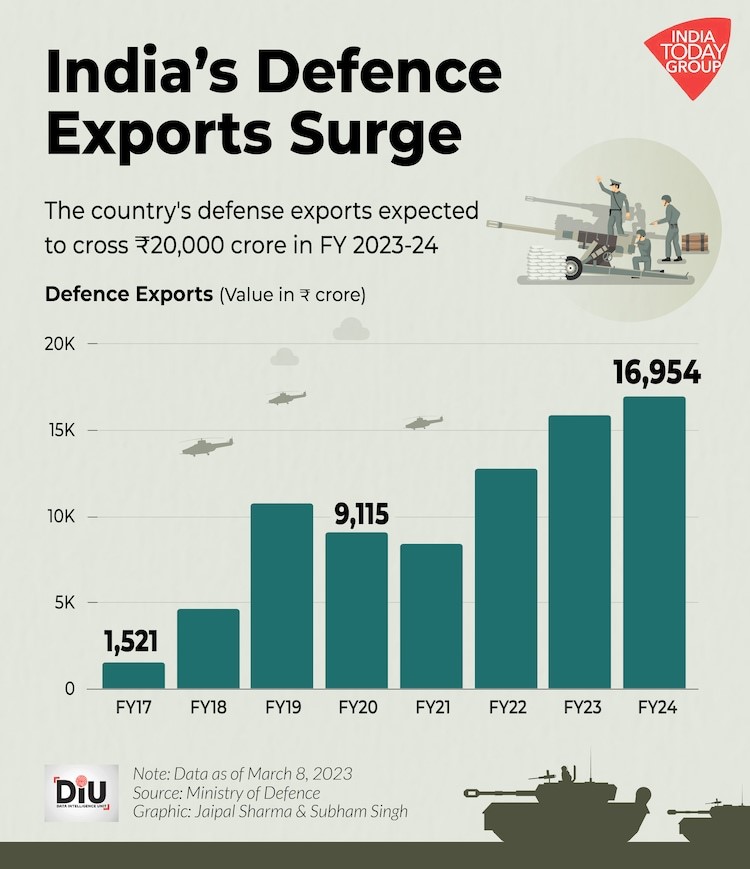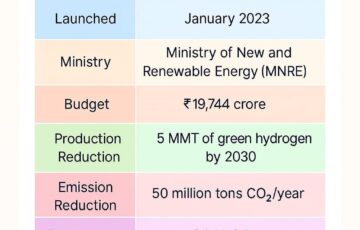India’s Defence Exports and International Humanitarian Law
Syllabus:
- GS 3 – Defence exports , International law , Indian values and ethics in international relations
Why in News :
- The Supreme Court of India recently dismissed a public interest litigation (PIL) that sought to halt defence exports to Israel, alleging war crimes in Gaza.
Focus :
- The article examines India’s legal and ethical responsibilities concerning its defence exports, particularly in light of international humanitarian law (IHL). It highlights gaps in India’s domestic regulations and compares them to international norms, particularly concerning countries engaged in conflicts. The article calls for legal reforms to enhance India’s credibility as a responsible defence exporter.
Introduction
- The Court refused to intervene, stating that foreign policy is not within its jurisdiction.
- The issue, however, extends beyond the case of Israel and raises important normative and legal questions for India as an aspiring major defence exporter.
India’s Aspiration as a Defence Exporter
Growing Defence Exports:
- India aims to become a significant player in the global arms market.
- The ethical concerns related to exporting arms to conflict-ridden regions bring up questions about India’s commitment to international law and its stance on global conflicts.
Global Practices and Legal Frameworks:
- Many countries, including members of the European Union (EU) and the United Kingdom (UK), have laws restricting arms exports to countries that violate international humanitarian law (IHL).
- For instance, the Netherlands blocked F-35 fighter jet parts export to Israel due to the risk of IHL violations.
- The UK’s Export Control Act mandates a review of IHL compliance before authorizing exports to conflict zones like Gaza.
India’s Legal Framework for Defence Exports
Existing Laws:
- India regulates defence exports primarily through the Foreign Trade Act (1992) and the Weapons of Mass Destruction and their Delivery Systems (Prohibition of Unlawful Activities) Act (2005).
- These laws empower the central government to regulate exports based on national security and international obligations, including treaties and conventions.
Legal Gaps:
- Unlike the UK or EU, Indian law does not explicitly require the government to assess the importing country’s IHL compliance before approving defence exports.
- The current framework does not bind the government to review whether exported weapons might be used to violate IHL.
Role of the Supreme Court in Incorporating International Law
- The Supreme Court of India has, in the past, used international law to fill domestic legal gaps. Notable cases include Vishakha v. State of Rajasthan, where the Court incorporated international law to strengthen domestic legal protections.
- In this context, the Court could theoretically apply international humanitarian law to fill the current legal gap in arms export regulations.
International Law on Arms Trade
Arms Trade Treaty (ATT):
- The ATT is a key international treaty regulating the global arms trade and aims to prevent arms exports that could contribute to war crimes or serious violations of IHL.
- Article 6(3) of the ATT prohibits arms exports if the exporting country knows that the weapons will be used to commit war crimes.
- Article 7 requires exporting countries to assess whether their arms could facilitate serious IHL violations.
India’s Position:
- India is not a signatory to the ATT, so its provisions are not legally binding.
- However, some parts of the ATT reflect customary international law, and India may still be bound by these norms under general principles of international law.
India’s Obligations under International Humanitarian Law
Geneva Conventions:
- Common Article 1 of the Geneva Conventions obligates all signatories, including India, to respect and ensure respect for IHL.
- The International Court of Justice (ICJ) has clarified that this obligation extends to arms trade, meaning that states must refrain from exporting arms if there is a reasonable belief that the arms will be used to commit violations of IHL.
Nicaragua Case (ICJ):
- The ICJ’s judgment in Nicaragua v. United States emphasized that states must not supply weapons when there is a known risk of IHL violations by the recipient state.
- This case reinforces the idea that arms exports should be subject to scrutiny under IHL.
Challenges in Implementing IHL Obligations in Arms Exports
High Threshold of Proof:
- Scholars argue that exporting states must have a high degree of certainty that their arms will be used to commit IHL violations before stopping exports.
- This high threshold complicates efforts to align arms export decisions with international humanitarian norms.
Balancing National Interests and Ethical Concerns:
- India’s strategic and economic interests in becoming a major defence exporter must be balanced with its ethical obligations under IHL.
- Failing to do so could damage India’s international reputation and raise questions about its commitment to global peace and security.
Proposed Reforms to Strengthen India’s Defence Export Credibility
Amending Domestic Laws:
- The article argues that India should amend its Foreign Trade Act and Weapons of Mass Destruction Act to explicitly require an assessment of the importing country’s compliance with IHL.
- This would provide a clear legal framework for ensuring that India’s defence exports do not contribute to war crimes or serious violations of IHL.
Strengthening Oversight Mechanisms:
- Establishing an independent regulatory body to review arms export decisions could enhance transparency and accountability.
- Such a body could ensure that decisions are made based on a comprehensive assessment of IHL risks, aligning India with global best practices.
Comparative Analysis: UK, EU, and India’s Approaches
UK’s Export Control Act:
- The UK law requires a detailed review of IHL compliance before approving arms exports. In the case of Israel, the UK government has conducted multiple reviews of arms sales to ensure compliance with IHL.
EU’s Legal Framework:
- EU regulations similarly mandate member states to block arms exports that could lead to violations of IHL, as evidenced by the Dutch decision regarding F-35 jet parts.
India’s Current Stance:
- India lacks a comparable legal framework, and its arms export decisions are not subject to mandatory IHL reviews.
- Aligning with international practices through legal reforms could bolster India’s image as a responsible exporter while ensuring adherence to humanitarian principles.
Ethical Dimensions of Defence Exports
Moral Responsibility:
- As a major arms exporter, India bears a moral responsibility to ensure that its defence exports do not fuel conflicts or contribute to human rights violations.
- Ethical concerns should guide India’s arms trade policies, especially in regions where the risk of IHL violations is high.
India’s Global Image:
- India’s standing in the international community as a promoter of peace and humanitarian values could be undermined if its arms exports are used in conflicts that result in civilian casualties or war crimes.
- Strengthening export controls in line with IHL would enhance India’s credibility as a responsible global actor.
Conclusion
Need for Legal Reforms:
- To align with international standards and ensure compliance with IHL, India should reform its defence export laws.
- This would not only fill the current legal gap but also strengthen India’s global reputation as a responsible arms exporter.
Balancing National Interests and Global Obligations:
- India’s aspirations to become a major defence exporter must be balanced with its legal and ethical obligations under international law.
- By adopting stricter export controls and ensuring IHL compliance, India can contribute to global peace and security while safeguarding its strategic interests
Source– The Hindu
Associated Article
https:/universalinstitutions.com/indias-defence-export-ecosystem/
Mains UPSC Question GS 3
“Discuss the legal and ethical challenges India faces regarding its defence exports in the context of International Humanitarian Law. Should India reform its export laws to align with global standards? Critically analyze.





